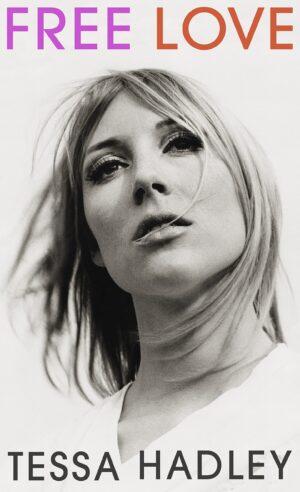It’s 1967, and while London is swinging, the home counties are abstaining. There’s certainly no Bohemian aura around suburban housewife, Phyllis Fischer. Forty and fragrant, Phyllis enjoys an elegant life of propriety, her days revolving around her family and social circle. Her complacency is set to be shattered when an intoxicating secret kiss ignites a desire for sexual and intellectual freedom. But at what price? Free Love by Tessa Hadley is a magnificently astute portrayal of family upheaval and compromise, set in an English decade itself in flux.
Phyllis shares a life that she will come to view as suffocatingly bourgeois with her husband, Roger, a head honcho at the Foreign Office, and children, Colette and Hugh. We join the family as Phyllis applies her immaculate hosting skills to a dinner whose sole invitee is Nicky, the son of old friends of Roger.
Her vague memories of him as a dull child are capsized by his arrival as a tousle-haired, casually louche young man. He arrives an hour late, stubs his cigarette out in the terrine, and electrifies her with his renunciation of all she has held to be true. He is a writer, a revolutionary. Phyllis wants him.
‘She’d been faithful to Roger always; before him she’d only had one other lover, a terrible mistake.’
Later, a tipsy snatched kiss in the garden firms her resolve. She decides that Nicky is now her lover, although he is ambivalent and neglects to give her his phone number. Expecting an affair as ‘moodily sophisticated’ as a French film, Phyllis tracks Nicky to his grotty rented room in Ladbroke Grove. Young enough to be her son, he is a gateway to a marijuana-laced world of intellectual stimulation and returning home after their first sexual liaison, Phyllis knows that her old life is finished.
‘A petal fell from bronze chrysanthemums in a vase in the hall, stair rods gleamed dully.’
Feeling that she cannot change her own life without bringing down her family, Phyllis is compelled to carry on regardless. She leaves Roger, abandons her children and gives herself over to a spectacular rebirth.
If each generation experiences its own contemporaneous spin on midlife crisis, Free Love arguably represents one of the most challenged. Women whose formative years were constrained by war, austerity and the conformist values of the 1950’s, watched the world explode into colour for their children. Phyllis wants the exhilarating freedoms that her teenage daughter is destined for.
In her poignant depiction of one woman’s search for self, Hadley avoids judgement. Phyllis is not the only morally compromised adult in the novel. There is a clever twist, secrets held by other characters that gradually come to light, and being a very English tale, the stoically repressive stiff upper lip is much in evidence. With this in mind and speculating on the various ways the story may end, the understated final page brings a lump to the throat. It is the perfect conclusion. A wonderful read.
Free Love by Tessa Hadley is published by Jonathan Cape, 320 pages.
If you’re into stories of women feeling trapped like Free Love, try Julian Barnes’ The Only Story or Mrs Bridge by Evan Connell.





